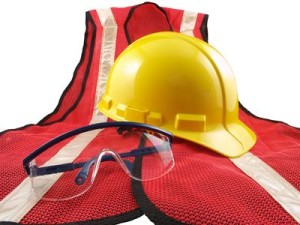You’ve worked hard your whole life and taken pride in how well you’ve done your job and provided for your family. Then, in an instant, everything changes: you fall from scaffolding at the construction site and end up in a hospital bed with a devastating spinal cord injury. As the doctors explain your condition, you realize that your ability to use your legs has been compromised and you’ll need to use assistive devices moving forward.
When an injury is this severe, there’s more at stake than missing a few paychecks: it’s about how you’ll support your family long-term, how you’ll afford the care you need, and whether you’ll ever be able to work again.
If you’ve suffered a catastrophic injury at work in Georgia, the law recognizes that your situation is different. Workers’ compensation provides extra protections and long-term benefits that go beyond standard claims. So what exactly qualifies as a catastrophic injury? How is it different from a typical workers’ comp case? And most importantly, what benefits are you entitled to?
What Is a Catastrophic Injury in Georgia Workers’ Comp?
In Georgia, not all serious injuries are classified as catastrophic under workers’ comp laws. The State Board of Workers’ Compensation (SBWC) makes that decision based on specific criteria.
Under O.C.G.A. § 34-9-200.1(g), an injury may be considered considered catastrophic if involves one of the following conditions:
- Severe spinal cord injuries resulting in paralysis (paraplegia or quadriplegia).
- Amputations involving an arm, hand, foot, or leg.
- Traumatic brain injuries that cause permanent cognitive or neurological damage.
- Severe burns covering at least 25% of your body or 5% of your face or hands. Must be second or third-degree burns.
- Total blindness or loss of vision in both eyes.
- Any injury that prevents you from returning to your prior work and work available in substantial numbers in the national economy.
If your injury meets any of these conditions, you may qualify for catastrophic status, which involves benefits that last much longer than regular workers’ comp claims.
How Catastrophic Injury Claims Differ from Standard Workers’ Comp Cases
Most injured workers in Georgia receive temporary disability benefits if there injury prevents them from working. But, these benefits last a maximum of 400 weeks (about 7.5 years). That’s a long time, but for someone with a life-changing injury, it’s not nearly enough.
When an injury is classified as catastrophic, the rules change. You get stronger protections, longer-lasting benefits, and access to care for as long as you need it. Here’s how a catastrophic claim involving permanent disabilities is different from a standard workers’ comp case in Georgia.
You May Receive Benefits for Life
In a typical workers’ comp case, wage replacement benefits stop after 350 or 400 weeks, whether you’ve fully recovered or not. But catastrophic cases don’t have that limit. If your injury permanently prevents you from working, you could receive income benefits for life. That means no expiration date on your checks, giving you and your family financial security for the long haul.
Lifetime Medical Treatment Is Covered
Workers with non-catastrophic injuries often hit roadblocks when the insurance company decides they no longer need care, even if they’re still in pain. Many injured workers fight just to keep physical therapy or see a specialist after a few years Even if they are able to continue getting medical treatment, there is an artificial time limit for medical care at 400 weeks from their date of injury with some very limited exceptions..
Catastrophic injury claims, on the other hand, do not have this artificial time limit on workers’ compensation medical treatment. That means:
- Surgeries and Hospital Stays: Whether it’s an initial emergency procedure or future corrective surgery, workers’ comp stays responsible as long as it meets the other medical care requirements.
- Rehabilitation Services and Physical Therapy: Many catastrophic injuries require ongoing rehab just to maintain mobility and function. Unlike standard workers’ compensation claims, catastrophic coverage doesn’t cut you off after a certain time period.
- Prescription Medications: Long-term pain management, muscle relaxers, or other necessary medications must continue to be covered.
- Medical Equipment: If your authorized treating physician orders a wheelchair, prosthetic limb, or special braces, the insurance company should provide and replace them as needed.
- Home and Vehicle Modifications: If your injury requires ramps, widened doorways, accessible bathrooms, or vehicle modifications, workers’ comp can be responsible for those to help you maintain independence.
If the insurance company ever denies necessary care, a workers’ compensation lawyer can help fight to get your medical treatment approved.
Vocational Rehabilitation May Be Provided
If you can’t return to your old job but can still work in some capacity, you may be eligible for vocational rehabilitation if your injury is designated catastrophic. Workers’ comp may cover:
- Job retraining for a different line of work.
- Education programs to learn new skills that fit your physical limitations.
- Job placement assistance to help you find a position that accommodates your workplace injury.
However, in many catastrophic cases, returning to work simply isn’t an option because of the severity of the injury. If your injury prevents you from holding any job, your workers’ compensation benefits could continue for life because there is no artificial time limit on wage replacement benefits in a catastrophic workers’ comp case..
How to Get a Catastrophic Work-Related Injury Designation
Insurance companies usually don’t automatically classify severe injuries as catastrophic, even when they should. They often fight against it because it means higher costs for them. Here’s what you or your attorney will likely need to do.
Gather Strong Medical Evidence
Your doctor’s opinion plays a major role in determining whether your injury qualifies as catastrophic. I’s important to have your own medical team thoroughly document:
- Your physical and cognitive limitations.
- The likelihood of long-term disability.
- How your injury affects your ability to work.
File a Request with the State Board of Workers’ Compensation
If your employer’s insurance company denies catastrophic status, you can appeal to the State Board of Workers’ Compensation. This legal process may involve:
- Requesting a hearing
- Going through the discovery process including depositions
- Submitting medical records and expert testimony.
- Attending a hearing before a judge.
- Providing statements from vocational experts about your ability to work.
Hire a Workers’ Compensation Attorney
Insurance companies rarely approve catastrophic claims without a fight. A catastrophic injury lawyer can help you:
- Gather strong medical evidence.
- Challenge unfair denials.
- Retain a vocational expert to give testimony about how your injury affects your ability to work
- Represent you in hearings and all other aspects of your case.
- Make sure you receive the maximum benefits possible.
The earlier you get legal representation, the stronger your case will be. An experienced lawyer will advocate for you so that a focus on profits doesn’t prevent the insurance carrier from paying the weekly wage loss and medical benefits you are entitled to.
What Happens If Your Catastrophic Claim Is Denied?
Even if you have life-altering injuries, the insurance company may refuse to classify it as catastrophic because once they do, they’re likely on the hook for lifetime benefits and medical care. Unfortunately, insurers look for any excuse to deny these claims.
Here are the most common reasons they use to reject catastrophic status:
- “You Can Still Work.” The workers’ compensation insurance carriers may argue that, while you can’t return to your old job, you could still do some kind of work, even if that means sitting at a desk for a few hours a day.
- “Our Doctor Says You’re Not That Disabled.” You’ll likely be required to see the insurance company’s doctor for an evaluation. If that doctor downplays your severe condition or claims you have more mobility than you actually do, the insurer will use that report to deny catastrophic status.
- “Your Condition Could Improve.” The insurer may argue that, with the right treatment, you could recover enough to work. Even if your doctor says your limitations are permanent, the insurance company might claim you haven’t reached maximum medical improvement (MMI) yet and try to delay the decision.
If your catastrophic claim is denied, don’t give up: you have the right to appeal. Here’s what you can do:
- Get an independent medical evaluation (IME). Your treating doctor’s opinion matters, but an independent medical exam from a trusted specialist can provide stronger evidence.
- Collect detailed medical records. This includes MRIs, X-rays, doctor’s notes, and therapy records that prove the severity of your condition.
- Provide vocational expert testimony. A vocational rehabilitation specialist can testify that your injury prevents you from working in any job, not just the one you had before.
- Hire a workers’ comp attorney. Appealing a denial is complicated, and insurance companies don’t back down easily. A skilled attorney knows how to fight back against unfair denials, gather expert opinions, and present the strongest case possible before the State Board of Workers’ Compensation.
The insurance company’s goal is to save money, but your goal is to secure the financial and medical benefits you deserve. If your claim is denied, act quickly to challenge the decision and protect your future.
Can Catastrophic Benefits Ever Be Stopped?
Even if you’re approved for catastrophic benefits, the insurance company may try to cut them off later. This usually happens if they believe:
- Your condition has improved enough to return to work.
- You’re not following the doctor’s orders for treatment.
- You’re earning income from another job.
- You reach Social Security retirement age
If you receive a notice that your benefits are ending, act quickly. A workers’ comp lawyer can challenge the decision and help you keep your lifelong benefits.
Protecting Your Future After a Catastrophic Work Injury
A catastrophic injury doesn’t just affect your ability to work: it impacts every part of your life, which is why you’re entitled to lifetime medical care and wage benefits. If you or a loved one has suffered a catastrophic on-the-job injury, call the legal team at Perkins Studdard today. The insurance company has lawyers fighting against you, so you need someone fighting for you. For more information or to speak to an experienced lawyer, contact our team today for a free initial consultation.
Related: What to Do If Your Workers’ Compensation Benefits Are Delayed or Stopped









